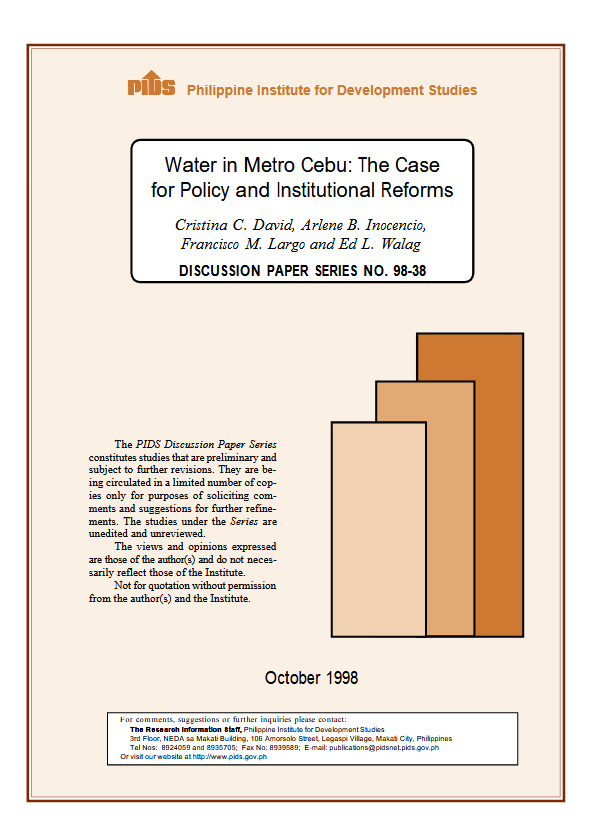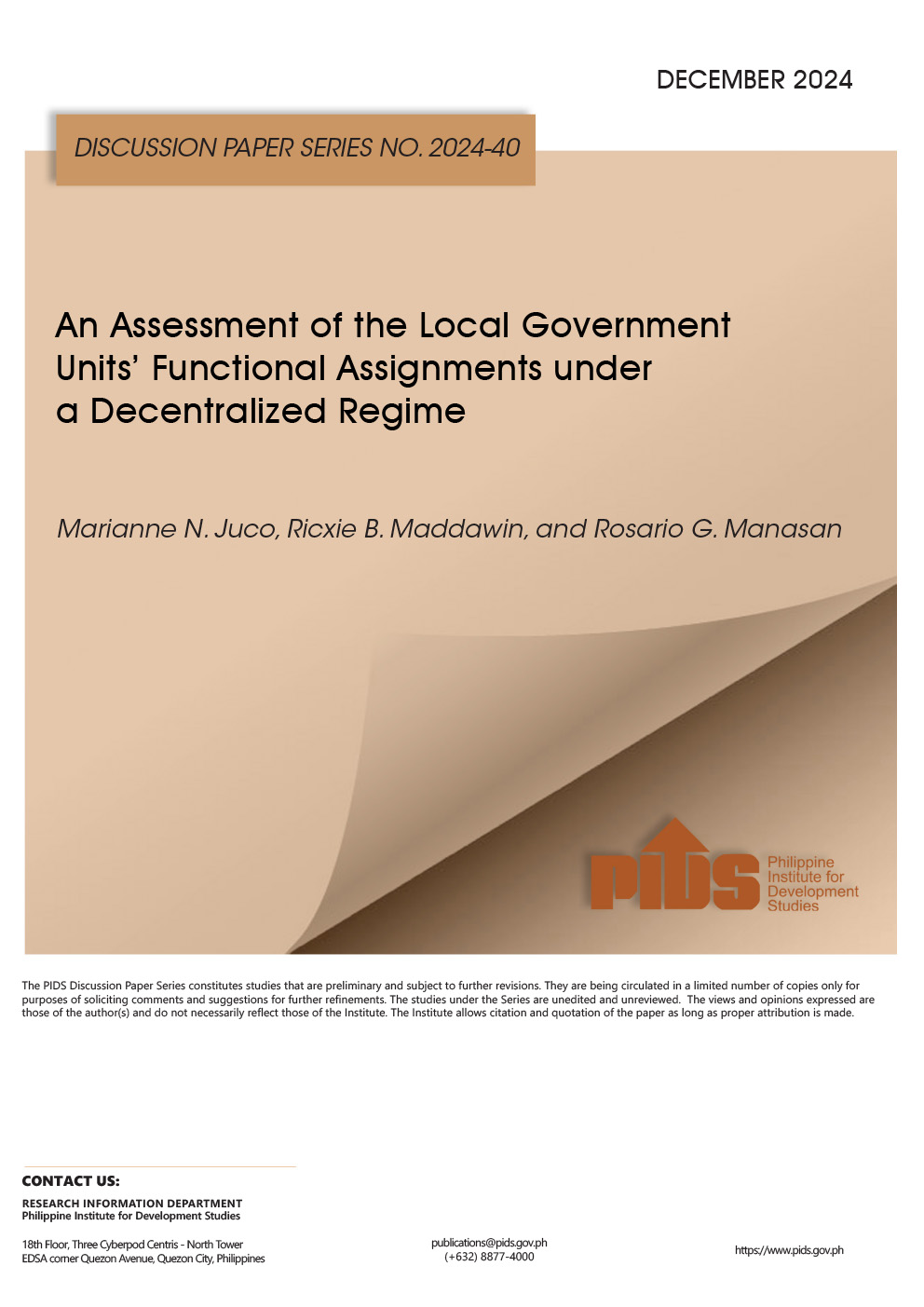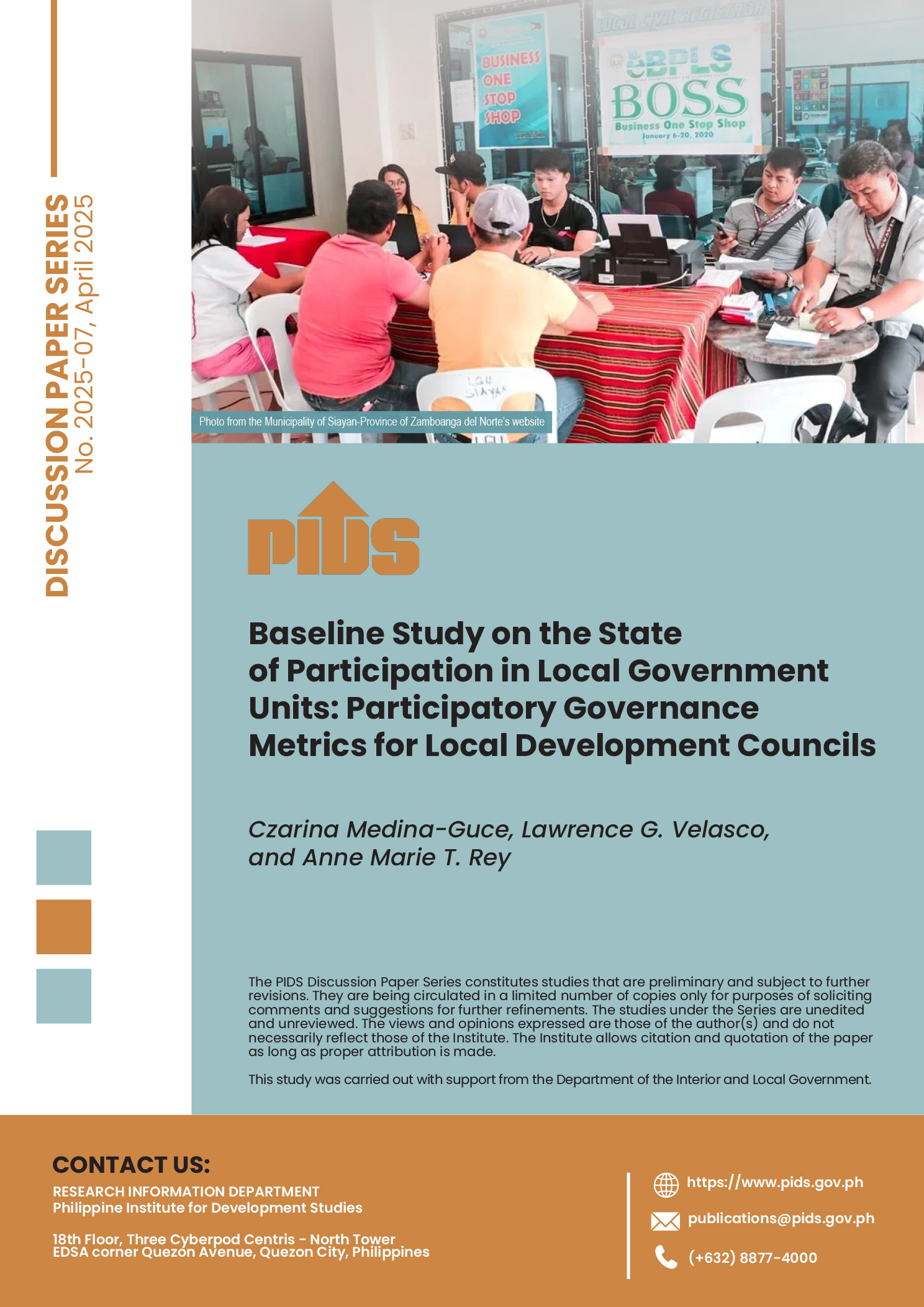Over the past decade, Metro Cebu has been rapidly moving towards growth and industrialization contributing as much as seventy percent to Visayas’ industrial output. However, associated with this progress are the concerns of various sectors about the quality of water services. Only 23 percent of the total households and a very small portion of industrial and commercial sectors are serviced by the Metro Cebu Water District. Hence, the large majority of households, industrial and commercial firms have to rely on private wells and private water vendors. This paper examines the policy and institutional factors that may be preventing the efficient, equitable and sustainable Metro Cebu’s water resource management. It study also provides policy areas through which policy and institutional reforms can be implemented.
Citations
This publication has been cited 4 times
- David, Cristina, Arlene Inocencio, and Debbie Gundaya. 2000. Impact of trade liberalization and exchange rate policy on industrial water pollution and groundwater depletion. Discussion Papers DP 2000-44. Philippine Institute for Development Studies.
- Gonzales, Glenda. 2004. Metro Cebu: a metropolitan area in need of coordinative body. Discussion Papers 2004-49. Philippine Institute for Development Studies.
- Locsin, Cherl Nino M. and Rosana J. Ferolin. 2018. Neural networks application for water distribution demand-driven decision support system. Journal of Advances in Technology and Engineering Research 4, no. 4, 160-175. . A/Professor Akbar A. Khatibi.
- Mercado, Ruben. 1998. Metropolitan Cebu: the challenge of definition and management. Discussion Papers 1998-15. Philippine Institute for Development Studies.













